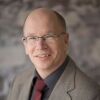As police officers we make judgments every day. Which vehicle or person gets stopped? Who gets a ticket? Who goes to jail? It’s part of our job and we usually do as thorough an investigation as the situation and circumstances allow, and then make those decisions based on the facts as we understand them at the time.
I’ve noticed, however, that when it comes to judging other cops a lot of that training and experience goes out the window. When I started out in this profession I was not immune to the problem.
On more than one occasion I jumped to a conclusion of how another cop had “screwed up” based on what I was told by another officer, who heard from another officer who “knew” all the facts.
Then, based on that dubious source of information, would come to some conclusion of how if I (or we, because it’s usually more fun to do it in a group) had been that officer it would have been done much better.
This is what I have heard described as “eating our young.”
I will admit I’ve been seated at the table of judgment and feasted on more than one occasion.
I’ve since learned that, amazingly, most of the time the story that I heard wasn’t quite the same as the story of the incident from the officer involved.
So, I learned try to go to the source rather than repeat the inaccurate story that was circulating. I’d love to tell you that this change came about as the result of some altruistic epiphany. The fact is that I decided to change my ways after I found myself as the subject of those discussions.
Funny how being the dinner (and not the diner) suddenly makes the feast a whole lot less fun.
Going to the source is easy when you work on a small department. On a larger department, that task becomes very difficult.
Furthermore, the Internet multiplies the opportunity to feed ourselves at the ever-growing worldwide table of judgment and you have a veritable smorgasbord provided at the speed of a hyperlink.
In a rush to judgment, feelings, relationships, and reputations can be hurt. Careers can be destroyed and lives can be lost.
For just one example, let’s consider an incident in which an undercover officer is shot in the vest by a suspect. He calls for assistance. He is mistaken by the responding uniform officers for the suspect, is then shot again, and seriously wounded.
A rumor starts (and quickly circulates) that the undercover officer intentionally shot and wounded himself to avoid an upcoming military deployment. Eventually the Chief of Police released a statement saying that their investigation showed the rumor was false.
Despite that, rumors continued to plague the officer.
He committed suicide.
So why do we sit at the table of judgment and feast or gorge ourselves. It boils down to one thing: EGO.
One source defines ego as “a person’s sense of self-esteem or self-importance.”
We like to be right because that builds our ego. For all of us, some more than others, the easiest way to build ourselves up is to tear someone else down. If that is the construction plan for your life and career, some words of caution: A pile of rubble is an unstable base; expect that at some time there will be a collapse.
Another factor that plays into this game is ignorance. Now, when I use the word ignorance I want you to understand that I don’t mean it in a derogatory manner. Ignorance is defined as a lack of knowledge. Ignorance is cured by gaining knowledge.
You may have heard that the Great Wall of China can be seen from space. While it’s true that it can be seen from Low Earth Orbit, the Great Wall is actually narrower than the average interstate highway, so if you’re any farther up, it is not visible to the naked eye.
So how did that “common knowledge” statement become “common knowledge” even though it is incorrect?
A famous astronaut said it, and the statement was repeated and repeated until it became accepted as fact.
As just shown, “common knowledge” isn’t always fact. We judge others by what we think we know. I recently attended the Force Science Research’s Force Analyst certification class. During the weeklong course we were exposed to the scientific principles of what happens to the human body and mind under extreme stress and how that affects human performance and perception.
The class was made up of attorneys and officers involved in use-of-force investigations and training.
In that room were hundreds of years of expertise in police investigations.
Yet, one of the most common statements I heard during those five days was:
“If I had known this information ___ years ago Officer ________ would not have been (disciplined, terminated, or prosecuted).”
We know that one of our greatest stressors in this job is the relationships that we have with one another. We also know that how we choose to judge one another can have a direct impact on that relationship.
In an upcoming series of articles, I’ll use a recent officer-involved shooting as a foundation to explain how we — all too often — come to the wrong conclusions regarding other officers’ actions.
We’ll look at the incident from three different perspectives — a surveillance video, a TV news video, and the unedited interview with the officers. We will discuss a few of the principles taught by the Force Science Analyst class to gain a better understanding of the science behind what happens. With the knowledge gained regarding officer involved incidents we take a step towards avoiding any future rush to judgment.


